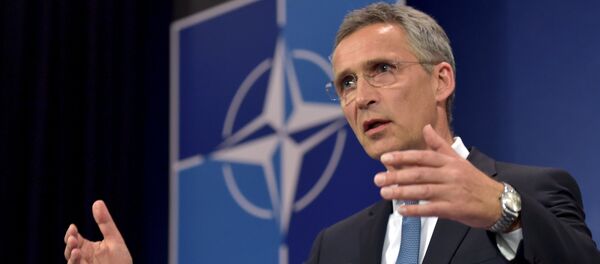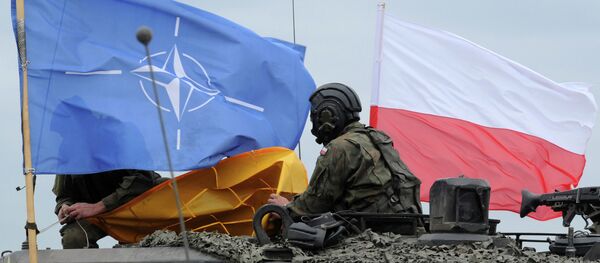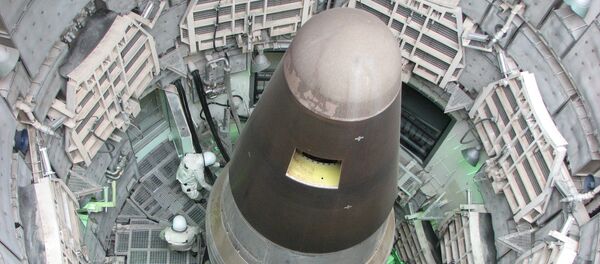According to the experts, Washington's popularity among its NATO allies and partners is growing. The US' European partners are seeking Washington's help in countering the "Russian threat," while in Asia China's neighbors want the United States "to be a part of the future so that it can play a central role in balancing Chinese power."
On the other hand, the United States is still indispensable for the containment Islamic State's growth in the Middle East, the experts deem.
"With a growing economy, world-class university system, innovative society, and the best military in the world, the United States is well placed to lead in the century ahead. It might not be called "the American century," but the future will be one Americans can be proud of," Rob Spalding and Adam Lowther asserted.
While Pentagon chief Ashton Carter beat the war drums in Europe, urging the states to raise their defense spending in the face of Russia's imaginary threat, major German and British energy corporations had signed a number of highly lucrative deals with Moscow. Thus far, they sent a clear signal to their governments that they do not view Russia as a threat and do not consider anti-Russian sanctions a hindrance to further cooperation with Russia, according to American-German economic researcher and historian F. William Engdahl.
A recent survey, carried out by the Pew Research Center indicated clearly that European NATO member states are reluctant to defend their allies against Russia, while public support for NATO is declining in Germany and in the United States itself.
Meanwhile despite obvious frictions between Beijing and its Asian neighbors over disputed territories and maritime routes, most Asian states jumped at the opportunity to join the China-led New Silk Road initiative. Some experts even go so far as to assert that the 21st Century Maritime Silk Road project may facilitate the resolution of the longstanding South China Sea maritime disputes.
Interestingly enough, Rob Spalding and Adam Lowther remained silent about the fact that US' European allies did not miss the chance to become founding members of the China-led AIIB, leaving Washington in the cold and turning a deaf ear to its vocal displeasure. The China-led financial institutions are viewed by many as a potential substitute for the US-influenced World Bank and International Monetary Fund (IMF). Beijing's initiatives may eventually facilitate the decline of the dollar and remove the US currency from its dominant position.
"The Iraqi government believes that international efforts to prevent ISIL's penetration into the country are insufficient. The Iraqi government's assessments show that the anti-ISIL coalition efforts have not been enough since the terrorists are still infiltrating Iraq and their number has not reduced," Iraqi Prime Minister spokesman Saad Hadithi underscored in an interview with Iran's Fars News Agency (FNA) in June 2015.
"Accepting the mantle of leadership being placed on American shoulders, from Tokyo to Berlin, may not always be easy, but the security and prosperity enjoyed over the past seven decades is built upon its willingness to do so," the experts underscored.
But it seems that not everything is so rosy in the garden as the experts describe.








